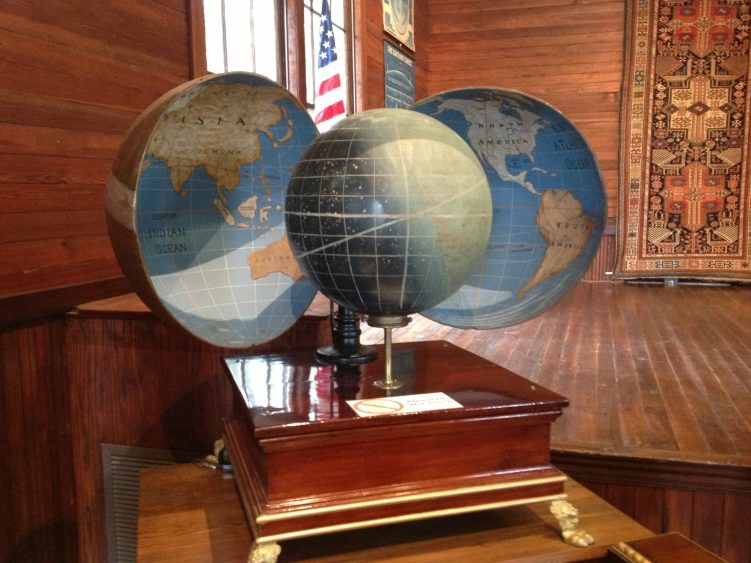
Thoughts on visiting Koreshan
Mar 02, 2013 by Bonnie
A few days ago we visited the Koreshan Settlement State Historic Site in Ostero, near Fort Myers, Florida. The Koreshan Unity was one of several communal utopian communities that were founded during the late 1800s in America.
The founder, Dr. Cyrus Teed (Koresh is Hebrew for Cyrus), led his followers, many of whom were quite wealthy, from big city Chicago to the wilderness of Estero in 1894 to establish “The New Jerusalem,” based on his social, scientific and spiritual beliefs. Among other things, Dr. Teed believed that the entire universe existed within one gigantic hollow sphere, and that the world was really concave, not convex. He was not alone in this belief. Edmund Halley (of Halley’s Comet fame) believed it, and Jules Verne toyed with the idea too. The US government even sponsored an expedition to find the North Pole with the idea that there might be an opening into the inner sphere at the pole. Unfortunately, all the expeditioners froze to death.
After growing to 250 resident members at its high point, the Koreshan community began to decline after Dr. Teed died in 1908 and did not rise from the dead as his followers had expected. The last four remaining members sold the property to the state in 1961, and the last member died in 1981.
I’m sure that the members of the Koreshan Unity truly believed in their founder, and in his principles. They staked their lives on this belief, and invested all their worldly goods in the experiment. But they could not change the laws of the universe simply by their belief in something different, no matter how sincere and devoted they were.
Many people today think that it doesn’t matter what you believe, as long as it “works for you.” Perhaps the Koreshanians were happy with their beliefs, but their sincerity did not change the truth that the world is round and is a tiny part of the universe. Likewise in spiritual matters, no matter how sincere one’s beliefs, that doesn’t mean they are true. The Bible predicts a time when people will turn away from the truth and turn to falsehoods, listening to teachers who tell them what they want to hear. There is no way that “all roads lead to God.” The world’s religions and belief systems have differing, and conflicting, views of reality, and they can not all be true. And of the do-it-yourself spirituality so prevalent in the US today, Ravi Zacharias (referencing C.S. Lewis) says, “To the ancient of old, said C.S. Lewis, the question was how to conform the soul to reality, and the answer was in virtue and wisdom. But to the contemporary modern, the question is how to reconfigure reality so it conforms to our passions. Some change, isn’t it?”
Christ said that His cross would be the stumbling block in the way of many people coming to the truth. If Christ’s death was necessary to reconcile us to God, then no alternative belief can possibly be true, without negating His sacrifice. My prayer is that when He returns He will not only find me faithful, but that others will find Him through my faithful witness of His grace.